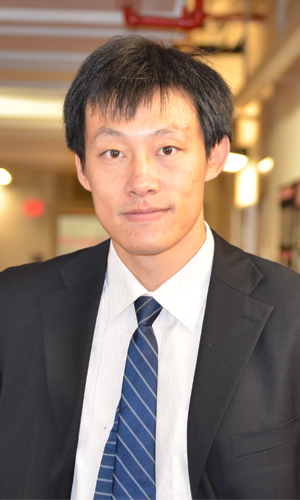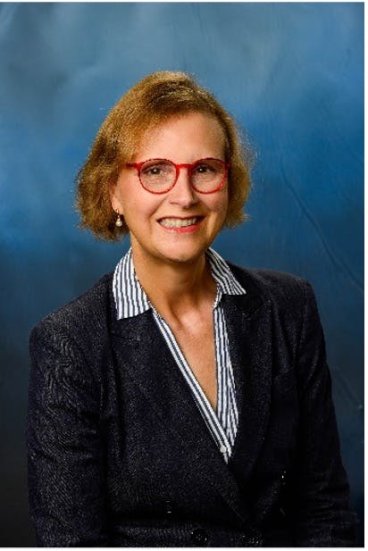Events
Upcoming Events
There are no upcoming events matching your criteria.
Previous Events
ISyE Seminar Series: Robert Shumsky
Wednesday, Feb. 23, 2022, 3:30 p.m. through Wednesday, Feb. 23, 2022, 5 p.m.
Zoom
 "Optimal Delay Messages"Presentation by Robert Shumsky Wednesday, February 23 |
|
About the seminar: What should service providers tell their customers about delays? Typical prescriptions include ‘provide more accurate information’ or ‘under-promise and over-deliver,’ but there are few empirical studies to back up this advice and (to our knowledge) no rigorous models that capture the interplay between information provision and each customer’s emotional response. Customers are typically disappointed if they have to wait longer than expected, and may also value accuracy and precision in delay messages. We develop a framework that takes these preferences into account so that delay messages are designed to optimize the customers’ experiences while waiting. We assume that customers are Bayesian and update their beliefs about the expected start time of service, given both the messages from the service provider and the passage of time. They may be loss-averse in the sense that an increase in the expected wait causes more distress than the positive response caused by an equivalent decrease, and they may be uncertainty-averse in that variance in delay forecasts diminish utility. We find that when loss aversion dominates, the optimal message structure emphasizes provision of information about the tails of the distribution rather than simply updating the customers about the duration of the wait. When uncertainty-aversion is high, more traditional ordinal forecasts are optimal, and optimal messages should provide the most accurate information about the longest delays. In general, the model allows us to explore the role of forecasting systems and delay announcements to both provide accurate information and manage expectations. "Optimal Delay Messages" (pdf) |
|
Bio:
Robert Shumsky is a Professor of Operations Management at the Tuck School of Business at Dartmouth and is co-director of Dartmouth’s Master in Health Care Delivery Science program. His research focuses on the improvement of service operations, and he has written about capacity estimation and control, how to allocate work to improve quality, and how to coordinate service supply chains. He has conducted research on the U.S. air traffic management system and studied transportation operations for state agencies and the Federal Aviation Administration. He has also served as a consultant for both manufacturing and service operations, including call centers and health care providers. Professor Shumsky has published articles in Manufacturing and Service Operations Management, Operations Research, Management Science, and the Proceedings of the National Academy of Science. He currently serves in various editorial positions for several academic journals. He received his PhD degree in Operations Research from MIT.
|
Seminar Video:
ISyE Seminar Series: Yunan Liu
Wednesday, Feb. 16, 2022, 3:30 p.m. through Wednesday, Feb. 16, 2022, 5 p.m.
Zoom
 "An Online Learning Approach to Dynamic Pricing and Capacity Sizing in Service Systems"Presentation by Yunan Liu Wednesday, February 16 |
|
About the seminar: We study a dynamic pricing and capacity sizing problem in a queueing system, where the service provider’s objective is to obtain the optimal service fee p and service capacity μ so as to maximize cumulative expected profit (the service revenue minus the staffing cost and delay penalty). Due to the complex nature of the queueing dynamics, such a problem has no analytic solution so that previous research often resorts to heavy-traffic analysis where both the arrival rate and service rate are sent to infinity. In this work we propose an online learning framework designed for solving this problem which does not require the system’s scale to increase. Our framework is dubbed Gradient-based Online Learning in Queue (GOLiQ). GOLiQ organizes the time horizon into successive operational cycles and prescribes an efficient procedure to obtain improved pricing and staffing policies in each cycle using data collected in previous cycles. Data here include the number of customer arrivals, waiting times, and the server’s busy times. The ingenuity of this approach lies in its online nature, which allows the service provider to do better by interacting with the environment. Effectiveness of GOLiQ is substantiated by (i) theoretical results including the algorithm convergence and regret analysis (with a logarithmic regret bound), and (ii) engineering confirmation via simulation experiments. “An Online Learning Approach to Dynamic Pricing and Capacity Sizing in Service Systems” (pdf) |
|
Bio:
Yunan Liu is currently an Associate Professor at the Department of Industrial and Systems Engineering at North Carolina State University. He obtained his B.E. degree from the Electrical Engineering Department at Tsinghua University, M.S. and Ph.D. degrees from the Industrial Engineering and Operations Research Department at Columbia University. His research interests include stochastic modeling, applied probability, simulation, queueing theory, optimal control, and online learning, with applications to customer contact centers, health care, production, blockchain and transportation systems. He teaches graduate and undergraduate classes on stochastic models, simulations, queueing theory and reinforcement learning. His work was awarded the first place in the INFORMS Junior Faculty Interest Group Paper Competition in 2016.
|
Seminar Video:
Workshop: Understanding the Journal Paper Process and Writing Papers That Will Be Chosen for Publication
Friday, Feb. 11, 2022, 11 a.m. through Friday, Feb. 11, 2022, 3 p.m.
To Be Determined
Cost:
Free, but registration is mandatory. Please register through this RSVP form.
About the event:
This short workshop will feature Alice Smith, a Joe W. Forehand/Accenture Distinguished Professor of the Industrial and Systems Engineering Department at Auburn University. Attendees will be provided an overview of the typical scholarly journal structure and reviewing process. Best practices for becoming involved as a reviewer and accomplishing the reviews will be given. Journal rankings and choosing an appropriate journal are also topics. The components of a typical scholarly paper are discussed in turn and writing papers that facilitate acceptance will be examined. Handling reviews effectively will also be covered including the steps of revision, responding to reviewers, and publicizing your accepted paper. Ethical practices in reviewing and publishing are an important part of this workshop. Finally, tips for becoming involved in editorial positions are outlined. This workshop is designed to help graduate students and newer faculty members to engage the academic journal system productively.
This workshop is organized by the Institute for Operations Research and the Management Sciences (INFORMS) — University of Minnesota student chapter. If you have any questions, please contact informs@umn.edu.
ISyE Seminar Series: Alice Smith
Wednesday, Feb. 9, 2022, 3:30 p.m. through Wednesday, Feb. 9, 2022, 5 p.m.
Ford Hall
Room 110
 "Innovative Uses of Drones for Last Mile Delivery with a Focus on Healthcare"Presentation by Alice E. Smith Wednesday, February 9 *Required attendance for students in IE 8773 and 8774 |
|
About the seminar: This seminar discusses two novel strategies for employing a combination of drones and delivery vehicles, such as trucks, for last mile delivery to homes and businesses. The work is general, but we aim for a healthcare application. One strategy uses drones to resupply trucks during the day for same day delivery, as orders are made available at a central depot. The trucks deliver the orders to the customers but do not have to return to the depot during the day since they are being supplied by the drones for new orders. The other strategy integrates a truck with a multi-capacity drone. In this case, either the truck or the drone can make both deliveries and pick-ups, and the drone is launched from and returned to the truck. A mathematical model is formulated and solved for each strategy. We show that both strategies offer benefits in customer service and cost of delivery compared to traditional truck delivery only. We focus our work on healthcare and specifically the delivery and pick up of medical supplies and tests (such as COVID tests) in challenged, rural environments. We are complementing our algorithmic and computational work with animations and a limited physical field trial. “The traveling salesman problem with release dates and drone resupply” (pdf) |
|
Bio:
Alice E. Smith is the Joe W. Forehand/Accenture Distinguished Professor of the Industrial and Systems Engineering Department at Auburn University, where she served as Department Chair from 1999-2011. She also has a joint appointment with the Department of Computer Science and Software Engineering. Previously, she was on the faculty of the Department of Industrial Engineering at the University of Pittsburgh from 1991-99, which she joined after industrial experience with Southwestern Bell Corporation. Dr. Smith has degrees from Rice University, Saint Louis University, and Missouri University of Science and Technology. Dr. Smith’s research focus is analysis, modeling, and optimization of complex systems with emphasis on computation inspired by natural systems. She holds one U.S. patent and several international patents and has authored more than 200 publications which have garnered over 14,500 citations and an H Index of 47 (Google Scholar). She is the editor of the recent book Women in Industrial and Systems Engineering: Key Advances and Perspectives on Emerging Topics.
|
Seminar Video:
ISyE Seminar Series: Karen Smilowitz
Wednesday, Dec. 8, 2021, 3:30 p.m. through Wednesday, Dec. 8, 2021, 5 p.m.
Ford Hall
Room 127
 "Integrating Dual Scheduling Modes in Workforce Management"Presentation by Karen Smilowitz Wednesday, December 8 *Required attendance for students in IE 8773 and 8774 |
|
About the seminar: Motivated by the emergence of self-scheduling platforms for volunteers and the continued need to meet time-specific needs of nonprofit organizations, this research explores modeling approaches and scheduling policies to effectively manage workforce scheduling for organizations with dual scheduling modes. As an illustrative example, we consider a nonprofit organization that provides relief to those impacted by disasters using both volunteers who schedule themselves and staff members who are assigned to shifts. We explore the advantages of scheduling policies that explicitly account for the two groups, balancing the need to cover time slots to meet demand with the desire to offer meaningful and convenient opportunities to volunteers such that they maintain their engagement with the organization. We present a case study based on operational data from our collaborators and more general insights based on synthetic data. This is joint work with Mariana Escallon-Barrios and Reut Noham. |
|
Bio:
Dr. Karen Smilowitz is the James N. and Margie M. Krebs Professor in Industrial Engineering and Management Science at Northwestern University, with a joint appointment in the Operations group at the Kellogg School of Management. Dr. Smilowitz is an expert in modeling and solution approaches for logistics and transportation systems in both commercial and nonprofit applications. Dr. Smilowitz is the founder of the Northwestern Initiative on Humanitarian and Nonprofit Logistics. She has been instrumental in promoting the use of operations research within the humanitarian and nonprofit sectors through the Woodrow Wilson International Center for Scholars, the American Association for the Advancement of Science, and the National Academy of Engineering, as well as various media outlets. Dr. Smilowitz is the Editor-in-Chief of Transportation Science.
|
Industrial and Systems Engineering Info Session
Monday, Dec. 6, 2021, 6:30 p.m. through Monday, Dec. 6, 2021, 7:30 p.m.
Many students don't know! Industrial and Systems Engineers blend mathematical modeling, engineering thinking, and business practices to optimize system performance. In fact, ISyE is one of the fastest-growing programs in the College of Science and Engineering.
Join our info session on Monday, December 6 at 6:30pm CST as we answer the following questions and more. Parents are also welcome to attend!
- What is Industrial and Systems Engineering (ISyE)?
- What kinds of classes do ISyE students take?
- How does ISyE combine engineering and business?
- What kinds of jobs can I get with an ISyE degree?
- Is it still possible to graduate in 4 years?
- What do ISyE students love about ISyE?
Interested but can't attend? Complete this form for more information and we'll connect with you.
Alumni-Students Interaction Session with Adhithya Shanmugam & Lalith Srivatsa
Thursday, Dec. 2, 2021, 6 p.m. through Thursday, Dec. 2, 2021, 7 p.m.
The second Alumni-Students Interaction Session will take place on Thursday, December 2 from 6:00 to 7:00 pm CST over Zoom.
Our featured guests include two University of Minnesota ISyE MS graduates: Lalith Srivatsa, a Solution Consultant at TadaNow, and Adhithya Shanmugam, a Data Scientist at Daikin Applied Americas.
This is a great opportunity for graduate students to interact with former department students and learn about their job experiences. We hope to see you there!
Alumni-Students Interaction Session with Guiyun Feng & Xiaobo Li
Thursday, Nov. 18, 2021, 7 p.m. through Thursday, Nov. 18, 2021, 8 p.m.
ISyE Seminar Series: Rahul Mazumder
Wednesday, Nov. 10, 2021, 3:30 p.m. through Wednesday, Nov. 10, 2021, 5 p.m.
Zoom
 "Sparse Learning at Scale: Convex, Mixed Integer Programming, and Statistical Perspectives"Presentation by Rahul Mazumder Wednesday, November 10 *Required attendance for students in IE 8773 and 8774 |
|
About the seminar:
Many fundamental high-dimensional statistics estimators, such as best-subset selection (BSS), can be naturally expressed as discrete optimization problems. Recently, mixed integer programming (MIP) methods have been shown to be promising candidates for formulating and solving, small/moderate instances of these problems. This sheds interesting insights into some less-understood statistical aspects of BSS, suggesting the need to design new estimators. On the computational front, current high-performance commercial integer programming solvers are somewhat black-box and can be challenging to scale to large instances. I will discuss our recent work on tailored branch-and-bound methods to solve, to optimality, a family of regularized BSS problems with up to a million features. For the first time, we employ first-order convex optimization methods within a branch-and-bound framework to solve instances of regularized BSS that show speedups of over 5000X over commercial solvers. If time permits, I will discuss some ongoing work where statistical modeling considerations can lead to the design of computationally attractive MIP formulations in the context of the well-known sparse PCA problem. (This represents joint work with: Hussein Hazimeh, Ali Saab, Antoine Dedieu, Peter Radchenko and Kayhan Behdin.)
|
|
Bio:
Rahul Mazumder is the Robert G. James Career Development Associate Professor in the OR and Statistics group at MIT Sloan School of Management. He is affiliated with MIT Operations Research Center, MIT Center for Statistics, and MIT IBM Watson AI Lab. His research interests are at the intersection of statistics and mathematical programming (convex and mixed integer optimization), and their applications to industry, the government, and the sciences. He is a recipient of the INFORMS Optimization Society Young Researchers Prize (2020), Office of Naval Research Young Investigator Award (2018). Student co-authors of his papers have received student paper/poster awards from the INFORMS Optimization Society ‘15, INFORMS Computing Society ‘20, Mixed Integer Programming Workshop ‘18, ‘21, MIT Operations Research Center ‘20. He is currently serving as an Associate Editor of the Annals of Statistics, an editorial board member of the Journal of Machine Learning Research, and will be joining the editorial board of Bernoulli in 2022. He helped form the Machine Learning cluster within the INFORMS Optimization Society (2021).
|
Seminar Video:
ISyE Seminar Series: Boris Hanin
Wednesday, Nov. 3, 2021, 3:30 p.m. through Wednesday, Nov. 3, 2021, 5 p.m.
Zoom
 "Ridgeless Interpolation in 1D with One Layer ReLU Networks and Tight Generalization Bounds for Learning Lipschitz Functions"Presentation by Boris Hanin Wednesday, November 3 *Required attendance for students in IE 8773 and 8774 |
|
About the seminar: In this talk, I will give a complete answer to the question of how neural networks use training data to make predictions on unseen inputs in a very simple setting. Namely, for a fixed dataset D = {(x_i,y_i), i=1,...,N} with x_i and y_i being scalars, I will consider the space of all one layer ReLU networks of arbitrary width that exactly fit this data and, among all such interpolants, achieve the minimal possible L_2-norm on the neuron weights. Intuitively, this is the space of “ridgeless ReLU interpolants” in that sense that it consists of ReLU networks that minimize the mean squared error over D plus an infinitesimal L_2-regularization on the neuron weights. I will give a complete characterization of how such ridgeless ReLU interpolants can make predictions on intervals (x_i, x_{i+1}) between consecutive datapoints. I will then explain how to use this characterization to obtain, uniformly over the infinite collection of ridgeless ReLU interpolants of a given dataset D, tight generalization bounds under the assumption y_i = f(x_i) with f a Lipschitz function. |
|
Bio: Boris Hanin works on theoretical machine learning, probability, and mathematical physics and is currently an Assistant Professor at Princeton Operations Research and Financial Engineering (ORFE). Prior to Princeton, Hanin was an Assistant Professor at Texas A&M Mathematics; a Visiting Scholar at Facebook, Google, and the Simons Institute; and an NSF Postdoctoral Fellow in Mathematics at MIT. |